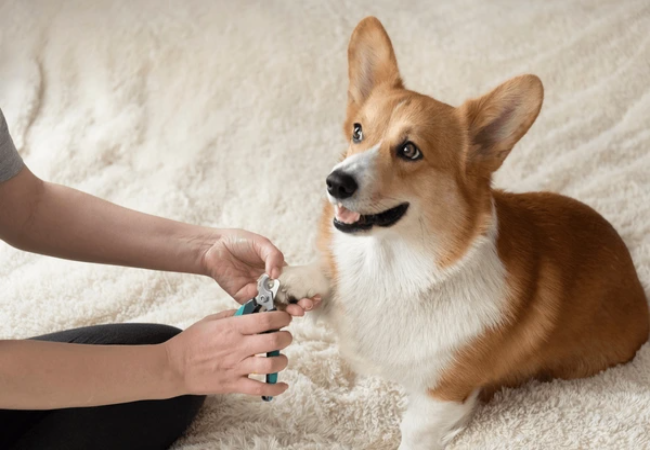Trim Your Dog’s Nails: 2025 Vet Approved Safe, Stress Free Guide 🩺🐶

In this article
Trim Your Dog’s Nails: 2025 Vet Approved Safe, Stress Free Guide 🩺🐶
By Dr. Duncan Houston BVSc
Proper nail care isn't just cosmetic—it prevents pain, infections, posture problems, and even joint strain. This vet-backed guide walks you through choosing tools, techniques, frequency, and tips to make trims safe and stress-free in 2025. 🐶🩺
1️⃣ Why Nail Trimming Matters
- Long nails can curl into paw pads, crack, or snag—leading to injuries or infections.
- They alter your dog’s posture and gait, causing joint strain, arthritis, and instability.
- Trimming maintains paw hygiene and prevents damage to floors, furniture, or you.
2️⃣ Schedule & Frequency
- Most dogs need trims every 3–4 weeks; adjust by wear rate and paw contact.
- Senior dogs benefit from weekly trims to prevent overgrowth and quick extension.
3️⃣ Best Tools for the Job
- Choose between stainless steel scissors, pliers, guillotine clippers—and grinders for smoothing.
- Grinders are great for black nails, letting you file gradually without deep cuts.
- Always have styptic powder on hand to stop any bleeding quickly.
4️⃣ Step-by-Step: How to Trim
- Acclimate the paws: Gently handle paws, touch them with tools, and reward—build positive association.
- Choose a calm, well-lit spot: Have an assistant hold still if needed.
- Trim small amounts: Cut at a 45° angle, vertically, just before the quick—especially with dark nails.
- Pace yourself: Trim a couple of nails per session if your dog is nervous.
- Reward generously: Praise, treats, or lick mats distract and reward cooperation.
5️⃣ Handling Accidental Cuts
- Apply styptic powder or flour immediately and hold pressure until bleeding stops.
- Monitor for prolonged bleeding—seek vet if bleeding continues.
6️⃣ When to Call a Professional
- Persistently anxious or wiggly dogs may benefit from a groomer or vet's care.
- Look for signs like cracked nails, infections, ingrown nails, or abnormal gait—veterinary care may be needed.
📊 Nail Care Summary Table
| Aspect | Recommendation |
|---|---|
| Trim frequency | Every 3–4 weeks (weekly for seniors) |
| Tools | Dog‑specific clippers or grinder + styptic powder |
| Technique | 45° angle, cut small, avoid quick |
| Reward | Treats, praise, distractions |
| Bleeding | Use styptic powder, hold pressure |
| Professionals | If fearful, wiggly, or nail issues are present |
🔍 Final Thoughts
Mastering nail trims keeps your dog comfortable, healthy, and safe—while strengthening your bond. With the right tools, patience, and positive reinforcement, at-home trims are achievable and beneficial in 2025 and beyond. ✂️❤️
Need a stress-free nail trimming routine or a pro to show you the ropes? Download the Ask A Vet app for personalized, on-demand grooming advice. 📱🐾






